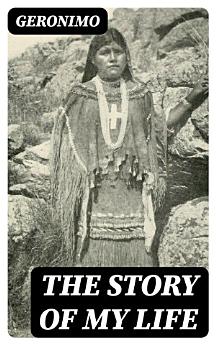The Story of My Life
Geronimo
Nov 2022 · DigiCat
Ebook
118
Pages
family_home
Eligible
info
reportRatings and reviews aren’t verified Learn More
About this ebook
In "The Story of My Life," Geronimo offers a profound and personal chronicle that captures the tumultuous experiences of the Apache leader both as a warrior and as a man. Through a vivid narrative style that blends autobiographical reflection with a manifesto of resistance, Geronimo recounts his life from childhood in the Apache lands to his role in the fierce struggles against the encroachment of American settlers. The book serves as an essential historical document, reflecting the broader socio-political context of late 19th-century America, while employing a straightforward yet powerful prose that amplifies the emotional weight of his experiences. Geronimo, born Gokhlayi (meaning 'The One Who Yawns'), emerged as a formidable figure during a period marked by violent conflict and cultural upheaval. His deep connection to his heritage and relentless commitment to his people profoundly influenced his narrative, showcasing not only his resistance against oppression but also highlighting the spiritual and cultural values of the Apache. Geronimo's unique perspective allows readers to grasp the complexities of his struggles, providing insight into the broader Native American experience during a time of crisis. I highly recommend "The Story of My Life" to readers interested in authentic narratives of resilience and cultural identity. It is an essential read for those seeking to understand the nuances of Native American history and the enduring spirit of resistance against colonization. Geronimo's voice resonates powerfully, inviting readers to reflect on the implications of his story in contemporary discussions around identity, heritage, and justice.
About the author
Geronimo, also known as Goyathlay ('One Who Yawns'), was a prominent leader and medicine man from the Bedonkohe band of the Apache tribe. Born in June 1829 in what is today Arizona, he became an iconic figure in Native American history for his resistance against Mexico and the United States, which sought to displace his people from their ancestral lands. Geronimo never authored books in the conventional sense, as he could neither read nor write English. The reference to 'The Story of My Life' pertains to the work of S. M. Barrett, who, with the assistance of interpreter Asa Daklugie, compiled Geronimo's oral narratives into a written form, first published in 1906. This autobiography provides an unparalleled insight into the Apache customs, spiritual beliefs, and Geronimo's own experiences, both during times of peace and war. Despite its secondary authorship, the book is regarded as the closest reflection of Geronimo's life from his perspective, outlining his inexorable spirit and determination to fight for his people's freedom. Geronimo's legacy today is manifold: as a symbol of Native American resistance, a subject of scholarly study, and an enduring figure in American cultural consciousness. His life and the recounting of it in 'The Story of My Life' serve as powerful testaments to the resilience and complexity of the Apache culture in the face of adversity.
Rate this ebook
Tell us what you think.
Reading information
Smartphones and tablets
Install the Google Play Books app for Android and iPad/iPhone. It syncs automatically with your account and allows you to read online or offline wherever you are.
Laptops and computers
You can listen to audiobooks purchased on Google Play using your computer's web browser.
eReaders and other devices
To read on e-ink devices like Kobo eReaders, you'll need to download a file and transfer it to your device. Follow the detailed Help Center instructions to transfer the files to supported eReaders.







